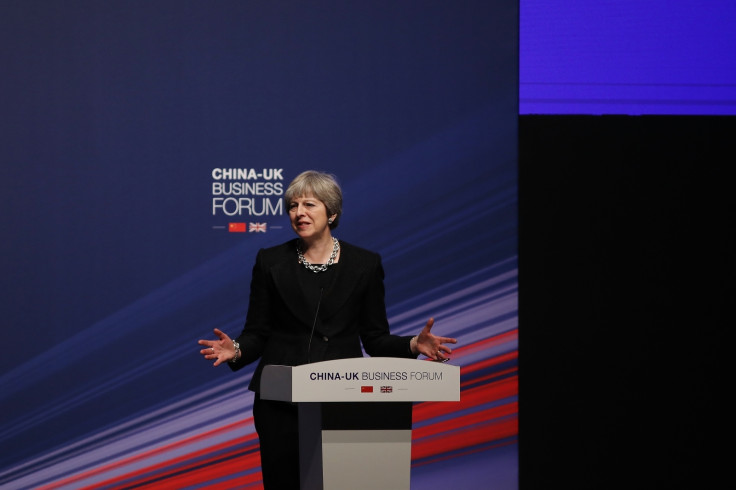Tories pressure Theresa May to reveal where she really stands on Brexit
May revealed £9bn of business deals on her trip to China.
Theresa May has come under increased pressure to reveal where she stands on the future of Brexit negotiations, with just over a year to go until the UK leaves the European Union.
The PM has been out of the country on a trade trip to China while many in her own party have been at war over Britain's future relationship with the EU.
Amid concerns Britain will have to choose between Europe and the rest of the world, May said that wouldn't be the case.
"I don't believe that those are the alternatives," she said.
"What the British people voted for is for us to take back control of our money, our borders and our laws and that's exactly what we are going to do.
"We also want to ensure that we can trade across borders."
While in China, May revealed that £9bn (€10.2bn) of business deals had been signed, but it is the trade with the EU that is causing the most concern.
The PM added: "What I favour is a deal, an arrangement for trading with the European Union which is going to be good for trade between the UK and the European Union and good for jobs in Britain."
But those comments will do little to dispel concerns among Tories, who have become restless back in Westminster.
Meanwhile, the PM also said that she will not sack the Conservative minister who claimed that the civil service had been deliberately producing negative reports on Brexit.
During question in the House of Commons, Steve Baker, a minster in the Brexit department made the suggestion that the leaked civil service reports were written in a "deliberately" negative way.
He had been asked by the prominent Brexiteer Jacob Rees-Mogg whether, according to a conversation with Charles Grant, from the Centre for European Reform, think tank "officials in the Treasury have deliberately developed a model to show that all options other than staying in the customs union were bad and that officials intended to use this to influence policy".
Responding to this question, Baker replied that he was "sorry to say" that Rees-Mogg's view was "essentially correct".
Baker said that: "At the time I considered it implausible because my direct experience is that civil servants are extraordinarily careful to uphold the impartiality of the civil service."
He was forced to apologise for the comments and the way they were perceived.























